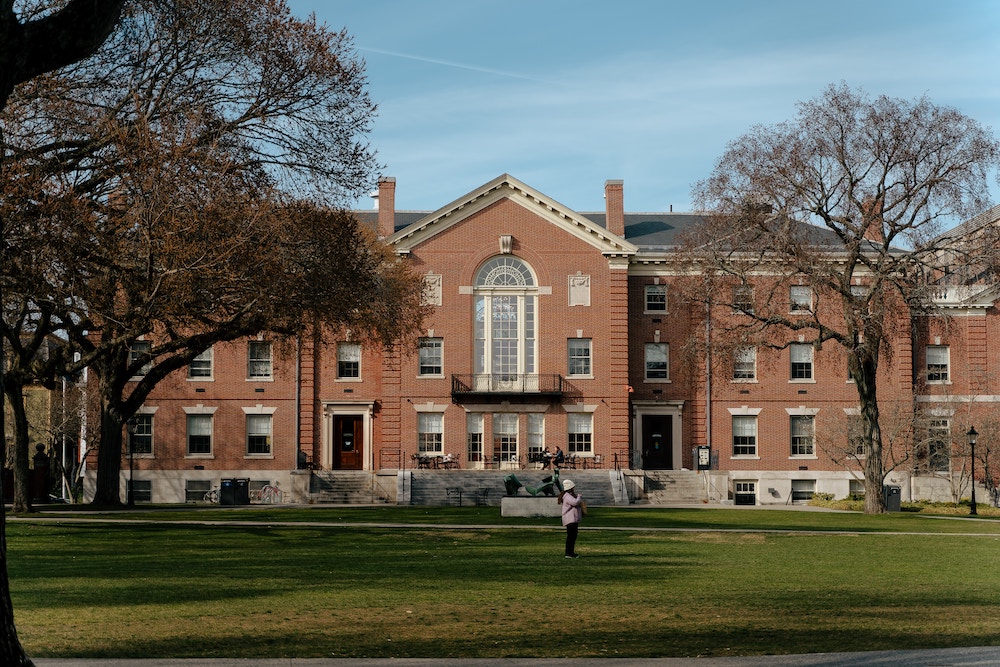Reading Lists
Here Are the Books Every Recent Graduate Really Needs to Read
Bill Gates is buying every new college grad a book, but we think he could have made a better choice

You might have heard that Bill Gates is giving a book to every person graduating college in the U.S. this year. The book is Factfulness by Hans Rosling. Rosling was a Swedish statistician, physician, and global health advocate, who wrote the book to combat the attack against facts by illuminating the ten human tendencies that keep us from seeing the facts. Then he presents loads of data to back him up. Rosling passed away before the book was published, and it was completed by his son and daughter-in-law.
The book certainly has a valiant mission — and we do need to talk about facts (now more than ever!). But along with Steven Pinker’s Enlightenment Now, Factfulness can also be understood as a book about why we are all doing better than we think we are. Which is just another way to say — “Hey graduates! Dive in to the status quo. The water’s fine enough.” Which of course, it isn’t. It’s important for graduates to feel freshly enraged. We need graduates to feel enlightened by their education and the history that precedes them, but we also need them to feel empowered to dismantle the systems the rest of us might feel like we’re already mired in.
We need graduates to feel enlightened by their education and the history that precedes them, but we also need them to feel empowered to dismantle the systems the rest of us might feel like we’re already mired in.
Gates is trying to help, and I’m sure Hans Rosling’s book has really wonderful insights to offer. But if every graduate is gifted one book as they enter the basal monotony threatening the other side of adulthood? (And we imagine a utopia in which every graduate reads it?) Then they deserve a better book.
Maybe some of Tracy K. Smith’s poetry, to remind them to look up, pay attention, and observe structures that can contain the known and unknown. Or a children’s book — like Kenny’s Window by Maurice Sendak. Or The Dispossessed, to put ideas in their heads about alternatives to capitalism. It was hard to pick one, so I reached out to authors I admire, as well as Electric Literature staff and contributors, to ask: if you had Bill Gates’s philanthropic purse, which book would you buy for every graduate in 2018? After gathering their answers I started to take notes for my own summer syllabus to keep me forever young.
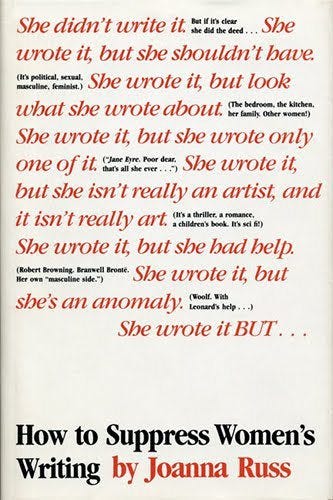
How to Suppress Women’s Writing by Joanna Russ
Because in it, she clearly and brilliantly demonstrates the ways dominant groups affect culture by (subtly, sometimes unconsciously) devaluing the art of women and other minority groups. If we gave this book to every graduate in the U.S. — or even better, assigned/taught it to every student in the U.S. — I think the world would actively become a better place. — Carmen Maria Machado, author of Her Body and Other Parties
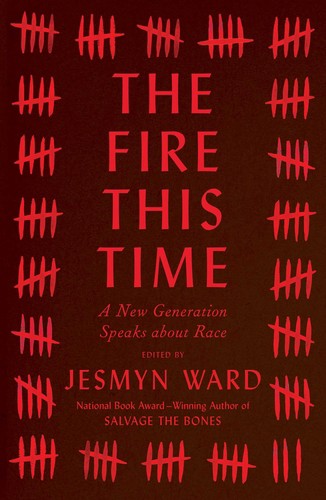
The Fire This Time: A New Generation Speaks About Race edited by Jesmyn Ward
Any and everyone should be aware of how race intrinsically affects people in America as we go into the world out of academia. Lessons learned in the classroom can be many, yet they may also be confined to a particular viewpoint. What we learn through expression as well as experience (and most importantly listening) can garner increased awareness on how to look at life but also how we each have a responsibility to be aware of how life affects others. I think The Fire This Time broaches those realities while also giving insight to a worldview that is not often taught in the classroom. — Jennifer Baker, contributing editor, Electric Literature


I Served the King of England by Bohumil Hrabal
About a young person starting out on the bottom, full of all the beauty, wonder, surprise, heartache and tragedy of a fully lived life. — Kelly Luce, editor, Recommended Reading Commuter
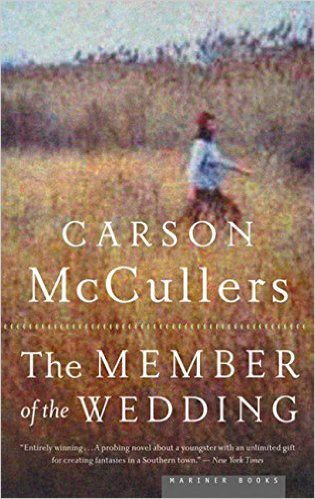
The Member of the Wedding by Carson McCullers
Frankie Addams is desperate to be included in her sister’s wedding, and the “green and crazy” summer marks a painful and exhilarating inflection point in her life. But The Member of the Wedding is much more than a coming of age novel. Frankie, like so many young people, wants to escape her circumstances. She is interested in breaking boundaries of manner and tradition, but also of gender and race, and one hopes she preserves her strong mindedness into adulthood, just when she is most at risk for allowing it to fade. — Halimah Marcus, executive director, Electric Literature
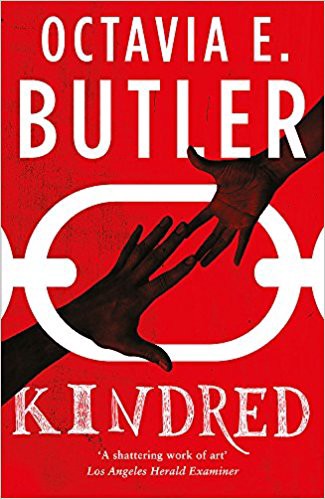
Kindred by Octavia Butler
Too many high school graduates finish with fiction the minute they finish school, but this suspenseful fable about a woman sent back in time and forced to labor on the slave plantation where her ancestors toiled checks every post-high-school box: it’s instantly likable, perpetually timely, and readably accessible to young adults without even hinting at condescension. What a lot of readers — young and old — seem to need in fiction, clear-cut heroes and villains, are represented here, as are difficult moral choices, and life lessons that have the added benefit of being true. — John Cotter, author of Under the Small Lights
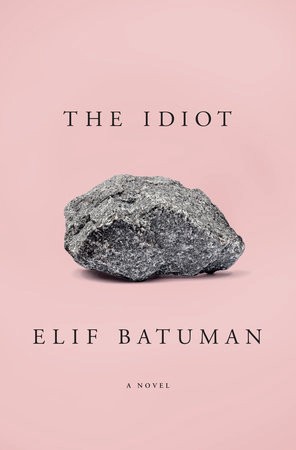
The Idiot by Elif Batuman
People will think I’ve only read one book but The Idiot is a good one — it’s wonderful to read years after college but also captures all the weirdness of being between the real world and still a student. — Lucie Shelly, senior editor, Recommended Reading
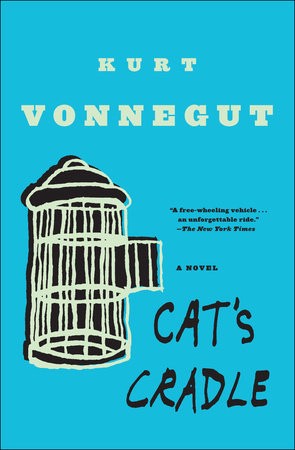
Cat’s Cradle by Kurt Vonnegut
This is HIGHLY EMBARRASSING, but the first thing that sprang to mind was Kurt Vonnegut’s Cat’s Cradle. Not only a white guy, but one of those white guys white guys are always white-guying about! But one skill I think people of all ages need right now is the ability to be skeptical of the easy categories they’re handed (including “white guy,” not for nothing) — the ready-made affinity groups you can slide into and shut down thought. Sometimes finding those groups opens you up to yourself and the world, because you finally feel understood and accepted, which makes so many other things possible — but they can also warp your view of other people, both the “us-es” and the “thems,” and they’re such cozy cages that unless you’re alert to the dangers you sink right into whatever self-affirming viewpoint is being offered. At best, that gives us the beautiful explosion of proud identity groups the internet has facilitated, but at worst it gives us fucking Nazis, so you know: let’s be vigilant about granfalloons, okay? Handle with care. — Jess Zimmerman, editor-in-chief, Electric Literature

Hyperobjects: Philosophy and Ecology after the End of the World by Timothy Morton
Instead of telling graduates “Everything’s fine!” I’m thinking “Mobilize the troops!” Timothy Morton’s writing is brilliant and weird and surprisingly accessible, and definitely has the capacity to blow some minds. This book is all about why it’s so hard for us to process global warming as a concept — its massive scale in time and space dwarfs human understanding — which lulls us into inaction. But “the hyperobject spells doom now”! Even if the kids can’t stop global warming, maybe this will help them come to terms with it. — Elisa Gabbert, author of The Self Unstable, The Blunt Instrument columnist

City of Thorns: Nine Lives in the World’s Largest Refugee Camp by Ben Rawlence
City of Thorns chronicles the lives of the forgotten refugees stuck in limbo in the Dadaab refugee camp in Kenya, some of whom have been there for 26 years. There are more forcibly displaced people now than ever before in history (65.6 million worldwide in 2017), but with the rise of anti-immigrant and anti-refugee sentiment across the world, fewer and fewer countries are willing to provide resettlement. In an era of fake news and xenophobia, City of Thorns is a timely read that helps to humanize and provide insight into the global refugee crisis.— Jo Lou, assistant editor, Electric Literature







